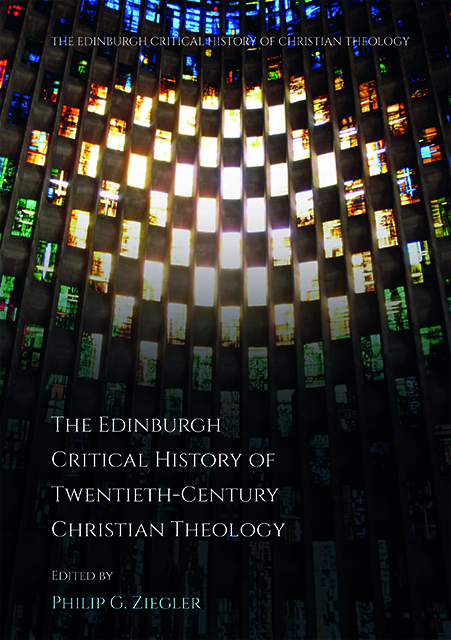Book contents
- Frontmatter
- List of Contents
- Notes on Contributors
- Editor's Introduction
- 1 Modern Theology in a Scientific, Historical Age
- 2 Tradition and Innovation
- 3 Scripture and Criticism
- 4 Reason, Method, System
- 5 Catholicism and Ecumenism
- 6 Fundamentalism and Evangelicalism
- 7 Synagogue, Sho’ah and State
- 8 Religion(s)
- 9 God
- 10 Spirit
- 11 Christ
- 12 Liberation and Freedom
- 13 The Secular – The Political: Augustine and Political Augustinianism in Twentieth-Century Political Theology
- 14 Globalisation after Empires: World Christianity and the Theological De-centring of Europe
- 15 War and Peace
- 16 Race and Black Theology
- 17 Sex and Gender
- 18 Hope
- Index
7 - Synagogue, Sho’ah and State
Published online by Cambridge University Press: 14 July 2023
- Frontmatter
- List of Contents
- Notes on Contributors
- Editor's Introduction
- 1 Modern Theology in a Scientific, Historical Age
- 2 Tradition and Innovation
- 3 Scripture and Criticism
- 4 Reason, Method, System
- 5 Catholicism and Ecumenism
- 6 Fundamentalism and Evangelicalism
- 7 Synagogue, Sho’ah and State
- 8 Religion(s)
- 9 God
- 10 Spirit
- 11 Christ
- 12 Liberation and Freedom
- 13 The Secular – The Political: Augustine and Political Augustinianism in Twentieth-Century Political Theology
- 14 Globalisation after Empires: World Christianity and the Theological De-centring of Europe
- 15 War and Peace
- 16 Race and Black Theology
- 17 Sex and Gender
- 18 Hope
- Index
Summary
Introduction
The Christian Church, as well as its various theologies, have been both influenced and challenged by their existence alongside and within the Synagogue and the State, from the middle of the first century until the present day. Indeed, these two institutional realities have been, for the Church, far more than conversation partners, or even competitors for the allegiance of souls. They have been ever-present hermeneutical motifs, by which and against which Christianity has sought to understand itself. The Sho’ah of the twentieth century – more commonly known as the Holocaust of the Jews under Nazism – not only introduced a third interpretive paradigm, but has also caused the Church to fundamentally rethink its relationship to the other two. It is this quadrilateral conversation – between the Church, on the one hand, and the Synagogue, the State and the Sho’ah on the other – with which this chapter is concerned.
Let me begin, though, with a caveat around language and terminology. To speak of ‘the State’ in the history of Christian thought is problematic enough: one is at immediate risk of being wedged between a Calvinistic coextensivity of Church and State at one end, and what we might call a Yoderian repudiation of positive statehood at the other. A much more nuanced reading of the Church's relationship with and understanding of the State is needed, particularly if the Church is to find its way in a pluralistic, post-Christendom world, that does not entail a retreat into the catacombs.
To speak of ‘the Synagogue’ is even more vexed. For centuries, both formal and colloquial Christian discourse employed the term ‘synagogue’ as a shorthand for unbelieving, and thus disobedient, Jews – a disparagement of Jews who, despite knowing the truth of the gospel of Christ, nevertheless refused to accept him. Just as the Judensau of Cologne Cathedral, or the blind and dishevelled Sinagoga on the flying buttresses of Paris's Notre Dame, reified in stone the Church's ‘teaching of contempt’,3 the very word ‘synagogue’ has likewise carried undisguised connotations of moribund infidelity into the very soul of Christianity. Again, while recognising the need for the Church to confess its mischievous rendering of this word, a reclaiming of the term is also necessary, if Christian belief and practice is not to slip back into the antisemitic caricatures of centuries past.
Finally, a word needs to be said about the word Sho’ah.
- Type
- Chapter
- Information
- Publisher: Edinburgh University PressPrint publication year: 2022



